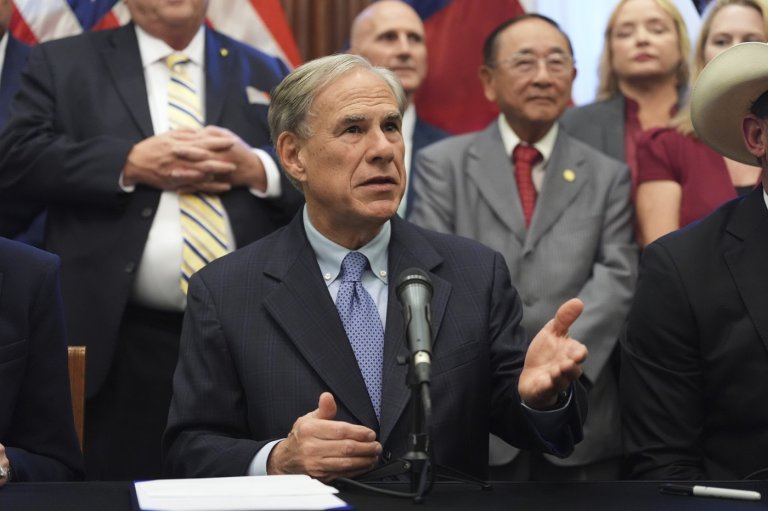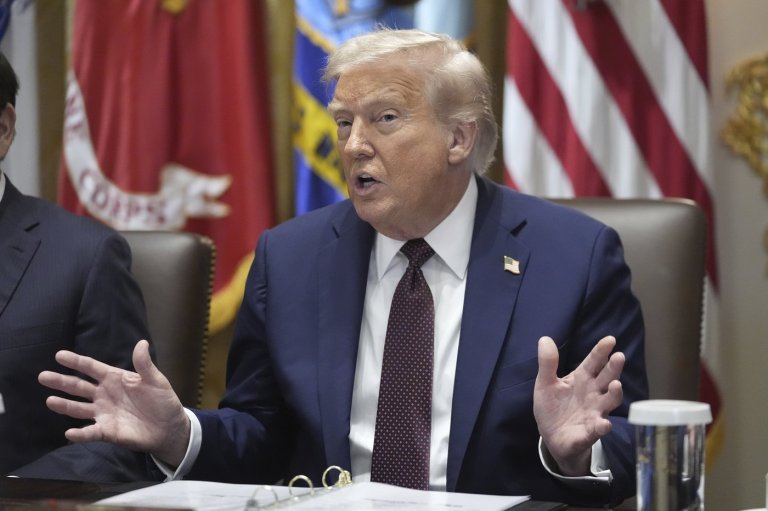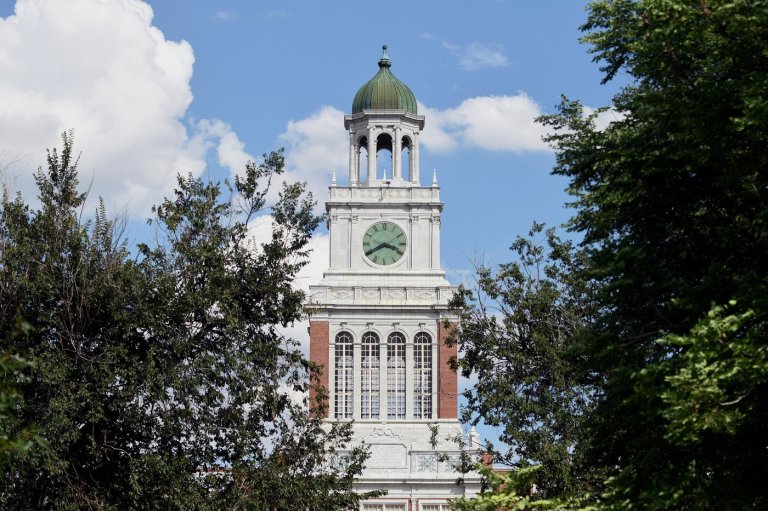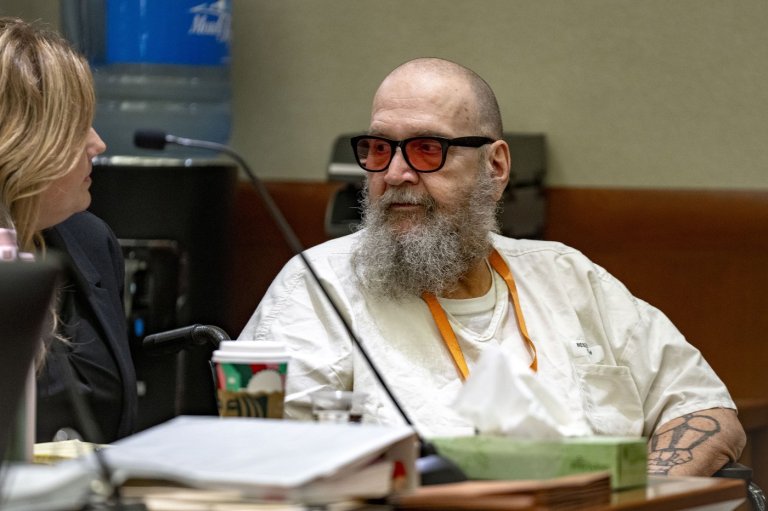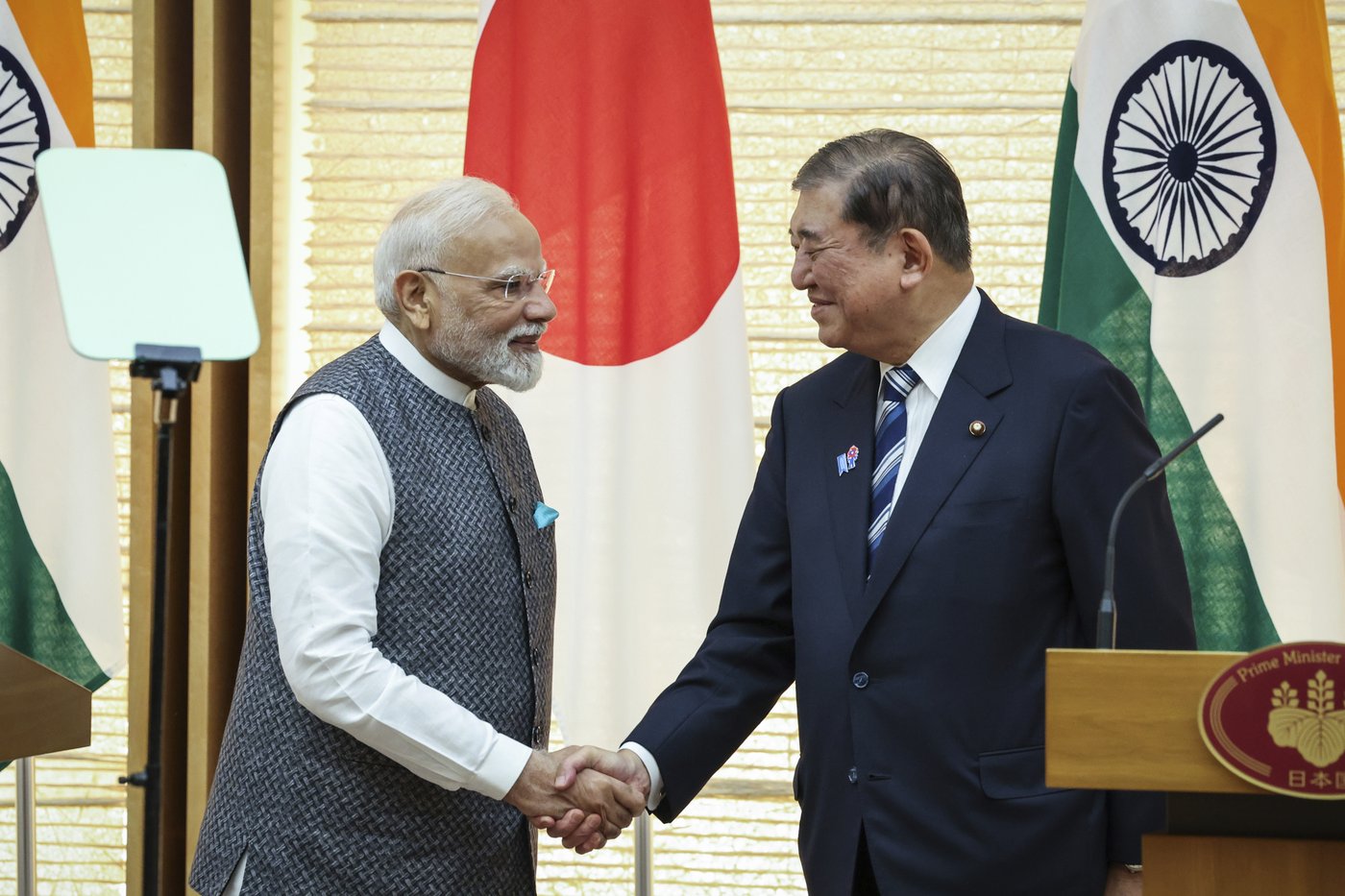
India’s Modi agrees with Japan’s Ishiba to boost economic ties and cooperation
TOKYO (AP) — The leaders of India and Japan agreed Friday to bolster economic ties while also boosting cooperation in defense, energy and other areas, as the two Asian powers face common challenges such as China’s growing influence and U.S. tariffs.
Following their summit in Tokyo, Indian Prime Minister Narendra Modi and Japanese Prime Minister Shigeru Ishiba agreed on a goal of boosting Japanese private investment in India to about $6.8 billion a year over the coming decade, up from about $2.7 billion a year in the 2010s.
They also agreed to increase exchanges of workers and students to half a million people in the coming five years. The two governments hope India’s young workforce can help address labor shortages caused by Japan’s aging and declining population.
“We believe that Japanese technology and Indian talent are a winning combination,” Modi told a news conference.
The two leaders released a “joint vision” of cooperation for the next decade in areas such as security, defense, clean energy, technology and space, and signed a total of 11 documents.
“As the economies and vibrant democracies of the world, partnership is extremely important not just for our two countries but for global peace and stability as well,” Modi said.
“We need to have to take advantage of each other’s strengths, to bring solutions to our challenges and to help each other,” Ishiba said.
In a separate joint statement, Ishiba and Modi reaffirmed their commitment to cooperate as part of the Quad framework of regional leaders, which also includes the U.S. and Australia and is intended to counter China’s growing influence.
The two leaders said they are fully committed to a free, open, peaceful and rules-based Indo-Pacific. Without specifically mentioning China, they expressed “serious concern” over growing tensions in the East and South China Seas and “strong opposition” to unilateral actions to change the status quo.
On Sunday, Ishiba will escort Modi on a bullet train to Sendai in northern Japan, for a tour of a factory that makes machinery for producing semiconductors, before the Indian leader flies to China, the next destination of his Asia tour.
Ishiba needs to rack up diplomatic successes to buoy public support because he is under pressure from opponents within his own party to step down over parliamentary elections results in July when his coalition lost its majority in the upper house.
Friday’s India-Japan summit came days after Modi met China’s Foreign Minister Wang Yi and hailed improving relations between the two sides, following yearslong disputes over their Himalayan borders.
At a business forum earlier Friday, Modi urged Japanese companies to invest in India, saying that reforms have created more a transparent and predictable business environment. “In India’s development journey, Japan has always been an important partner,” he told the forum hosted by Japan’s powerful business lobby Keidanren.
Modi noted Suzuki Motor Corp.’s success in his country and said Japan and India can replicate “the same magic” in batteries, robotics, semiconductors, shipbuilding and nuclear energy and contribute to the development of the so-called Global South nations and Africa.
“Japan is a tech powerhouse and India is a talent powerhouse,” Modi said, and that together the two countries can “lead this century’s tech revolution,” in areas such as green energy, next generation mobility and logistics infrastructure.
Ishiba said the two countries share universal values like democracy and the rule of law and that “Japan’s advanced technology and India’s outstanding talent, as well as its large market, are complementing each other to a dramatic expansion of our economic ties.”
He emphasized the importance of expanding their cooperation from the Indian Ocean to Africa and Europe.
___
AP video journalist Ayaka McGill in Tokyo contributed.
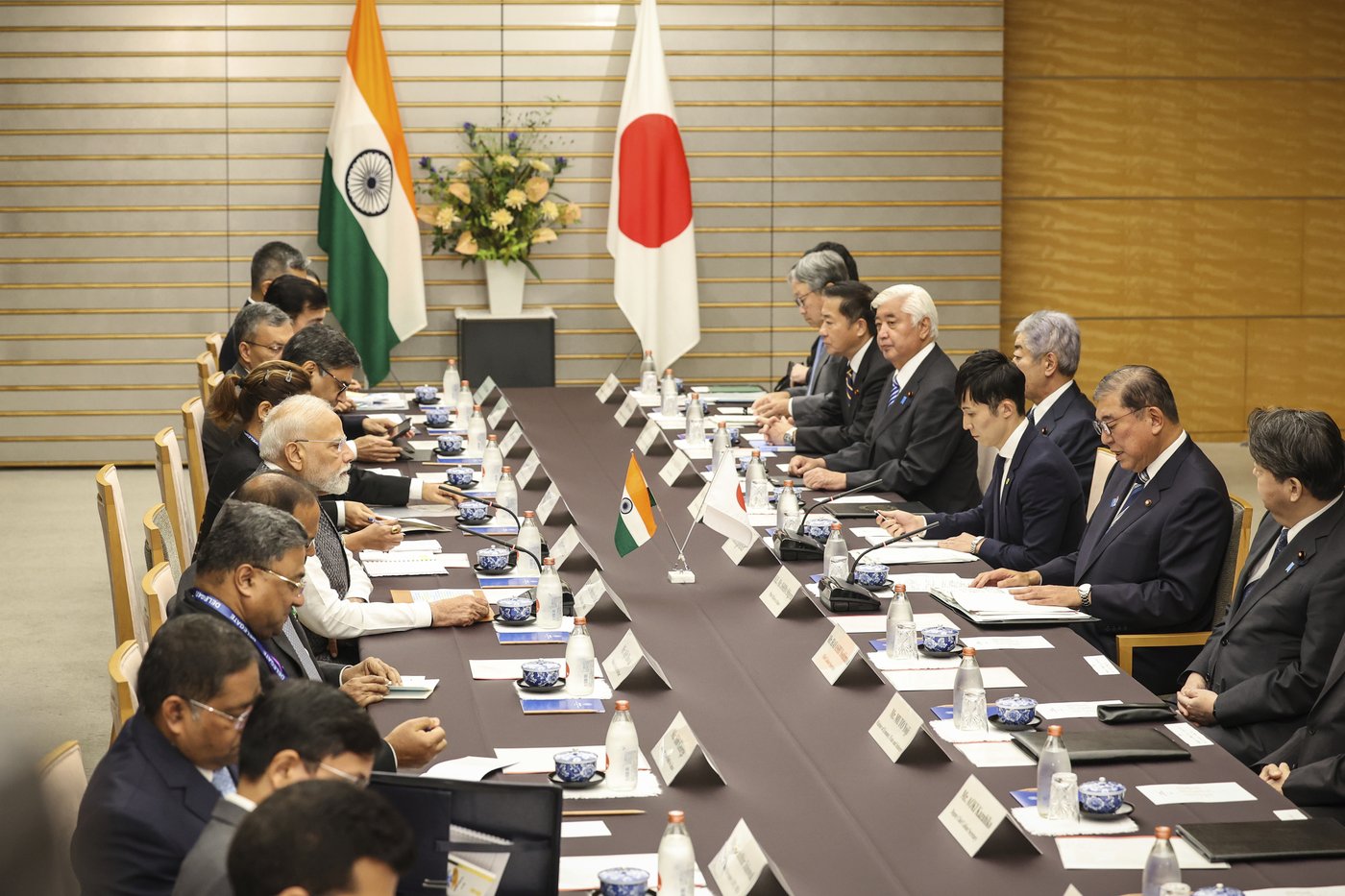
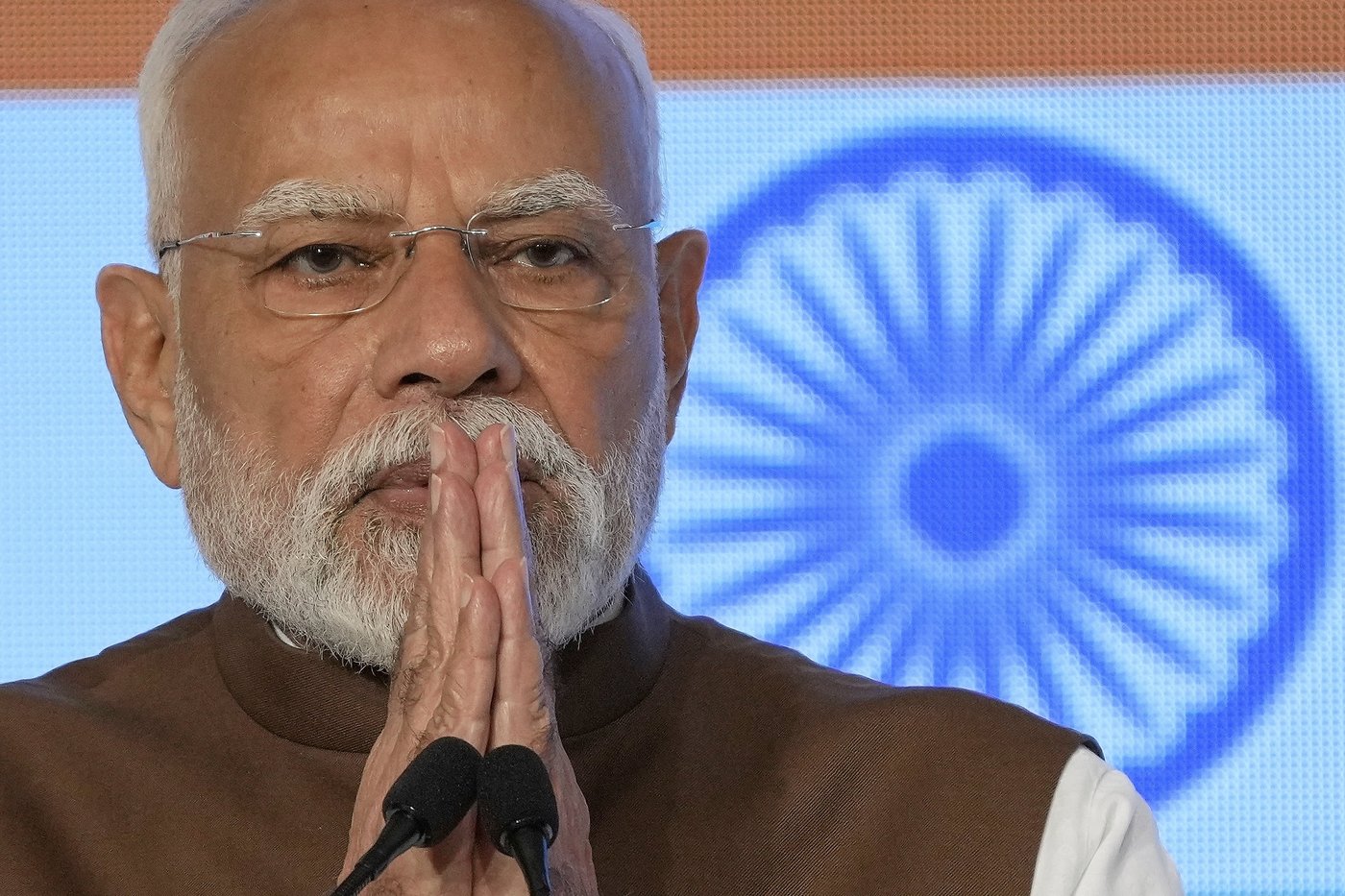
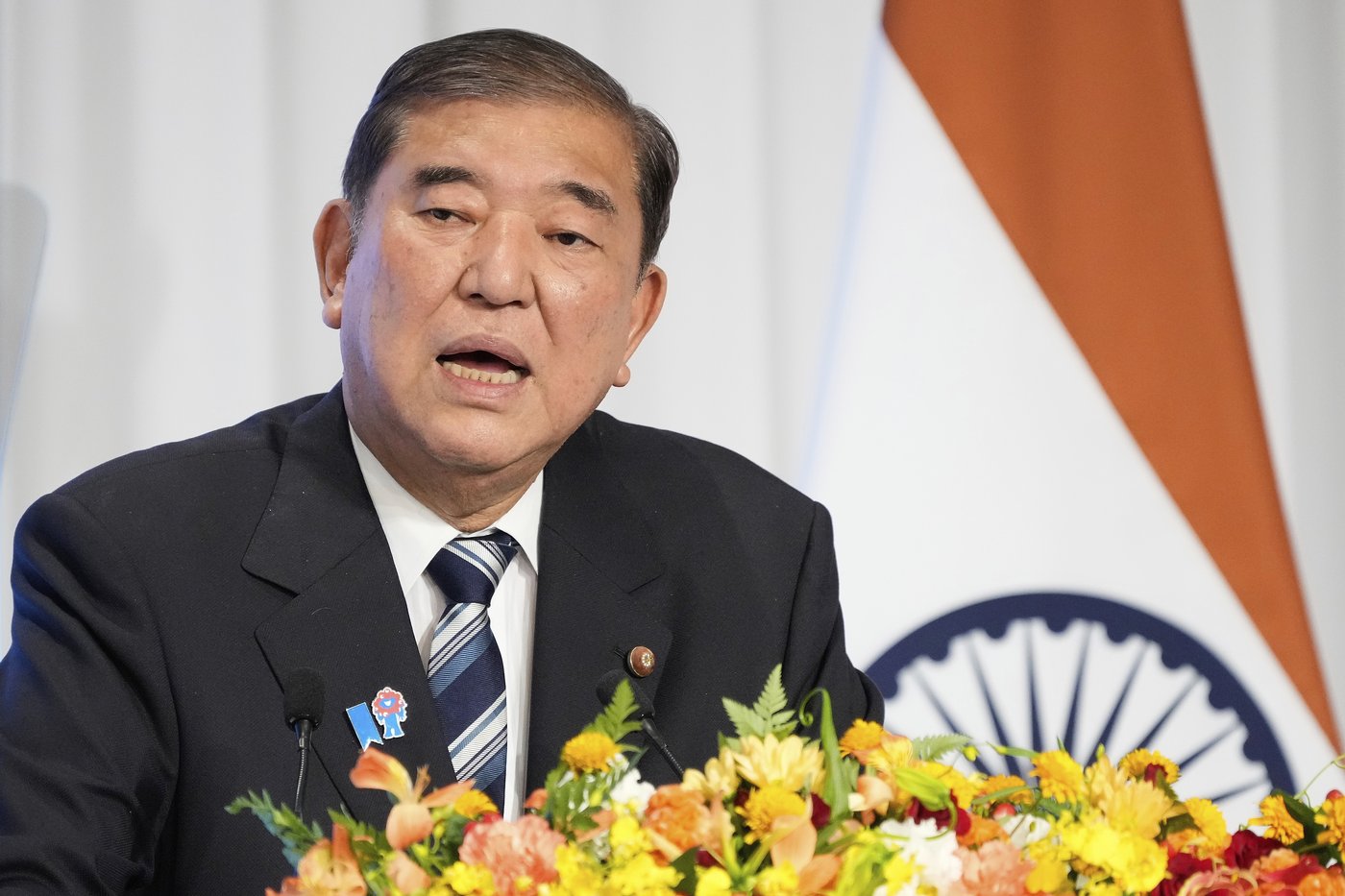
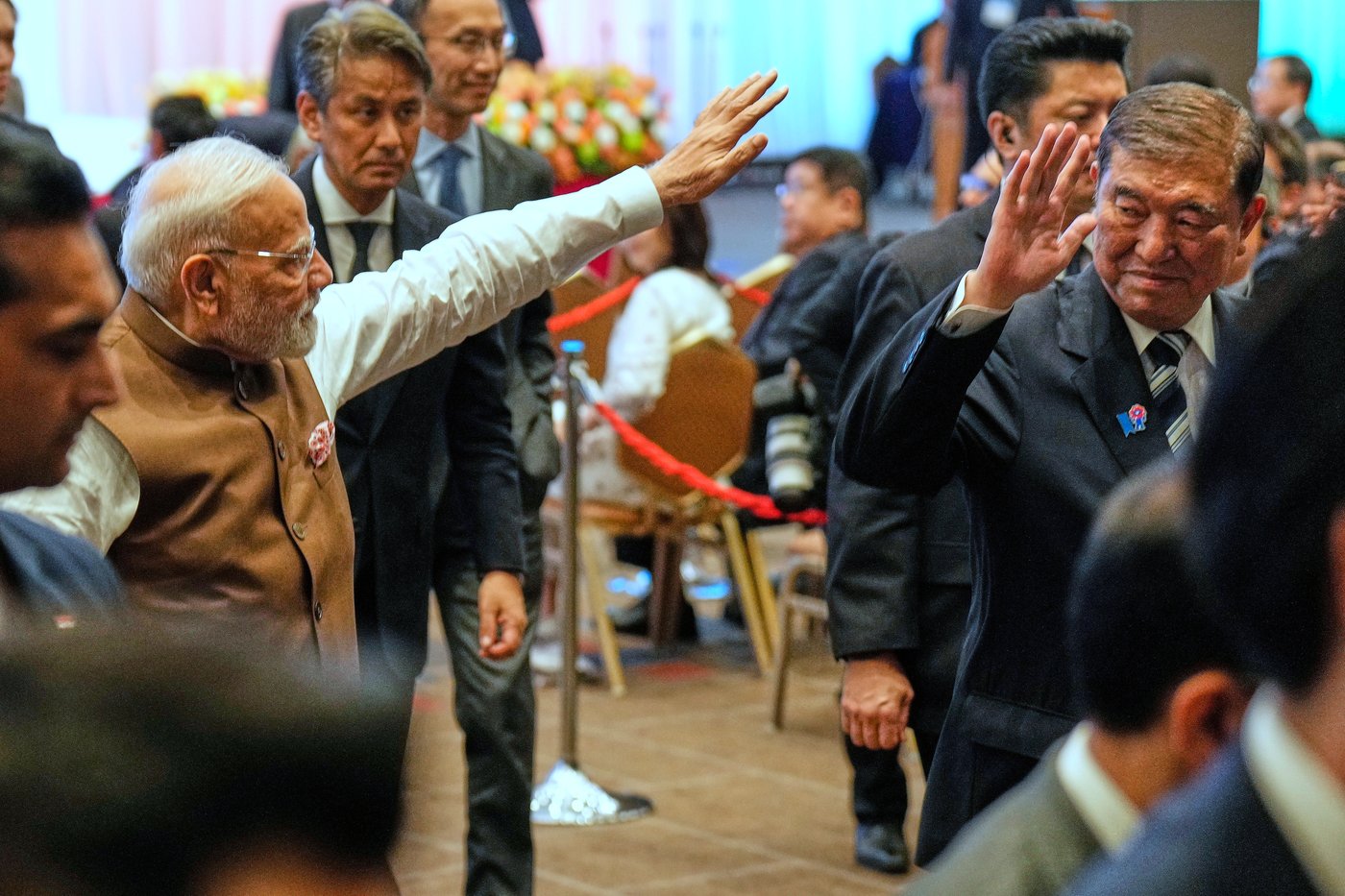
Join the Conversation!
Want to share your thoughts, add context, or connect with others in your community?
You must be logged in to post a comment.













